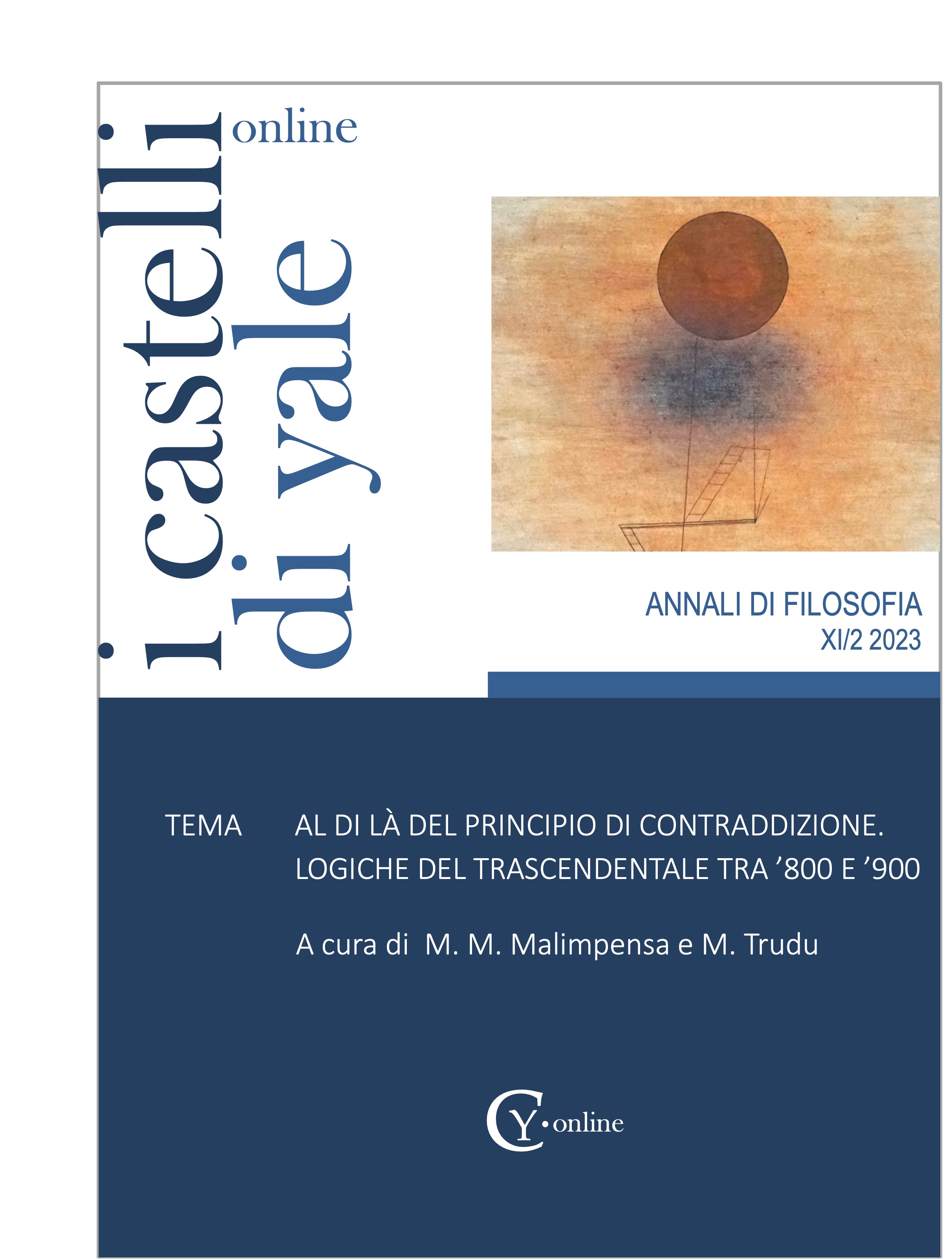Dall'ontologia all'analitica dell'intelletto puro
Tra conoscere "per me" e la cosa "in sé"
DOI:
https://doi.org/10.15160/2282-5460/2847Keywords:
Metaphysics, Ontology, Kant, Fichte, HegelAbstract
The article focuses on the Kantian distinction between ontology and the analytic of pure intellect. In the light of this distinction, some fundamental passages of Kant's philosophy are re-examined, in particular those relating to the notion of the I-think, the noumenon and the transcendental object. In this way, we can see how Kant himself, in some pages of his work, does not remain committed to the aforementioned distinction. This becomes even more important if we refer to the three great figures of German idealism: Fichte, Schelling and Hegel. The article intends to show how the entire operation of German idealism, to be understood also as a response to Kant’s criticism, can be read as much as an analytic of the pure intellect as an ontological operation that risks losing one of the most relevant outcomes of Kant’s thought.
Downloads
Published
Issue
Section
License
Copyright (c) 2024 Francesco Valagussa

This work is licensed under a Creative Commons Attribution-NonCommercial-NoDerivatives 4.0 International License.


